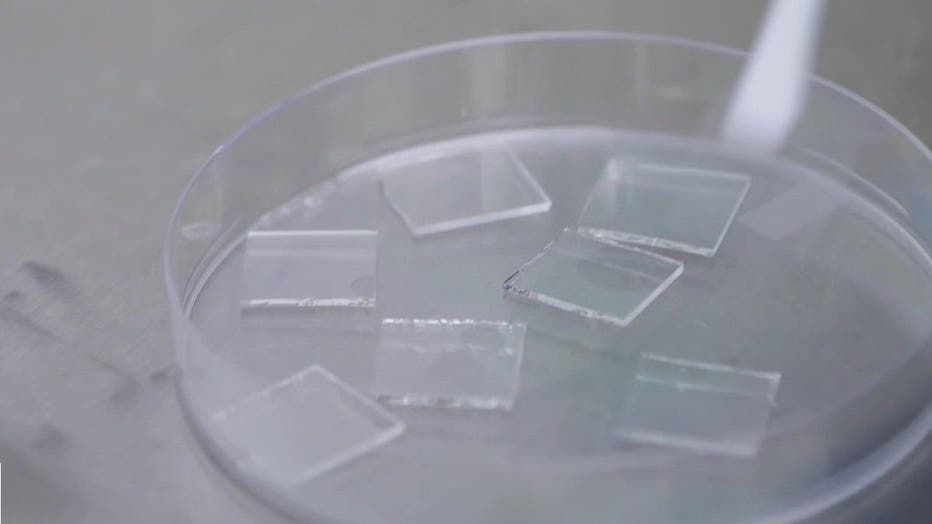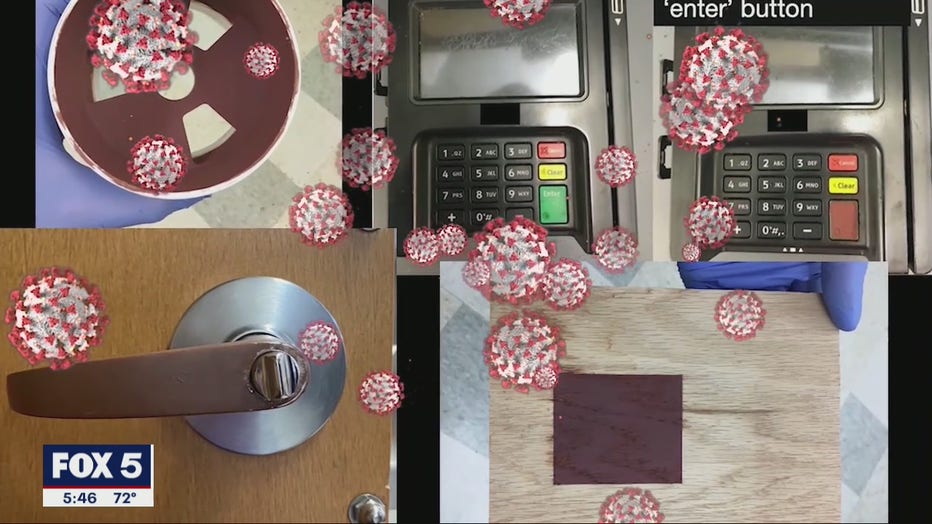Virginia Tech researchers create paint-on coating that can inactivate coronavirus

Special coating to fight the coronavirus
A Virginia Tech research developed a coating that can inactivate the coronavirus.
ATLANTA - This pandemic has made many of us nervous about touching shares surfaces like door handles, countertops, and elevator buttons.
Bleach and disinfecting wipes can kill the virus, but a team of researchers at Virginia Tech may have found a more lasting solution: a paint-on coating that can inactivate the virus.
The CDC says the novel coronavirus is primarily spread through the air, through respiratory droplets released when an infected person coughs or sneezes, which is infectious disease experts recommend wearing face masks and staying 6 feet away from others in public places.
"The respiratory droplets also land on common-touch surfaces, and then you can touch that and then touch your face, and then in goes the coronavirus," says Virginia Tech professor of chemical engineering William Ducker.
To keep that from happening, Ducker and two of his post-graduate students have been working since April to develop and test a copper-based coating that could inactivate the virus on high-touch surfaces.
They think they've found something that works.
"It's like a paint," Ducker says. "It's a paint, or a coating, that we're putting on many different objects."

The active ingredient in the coating is cuprous oxide.
"If you've ever held a penny in your hand, that surface of the penny is cuprous oxide," Ducker says. "So, we've tested that extensively. It really rapidly inactivates the virus, the coronavirus."
When Ducker and his team painted the coating onto surfaces like glass and stainless steel, he says, it inactivated the virus by 99.9% in about an hour.
They are still testing it, but Ducker thinks the brown-colored coating will be able to do the job in few minutes.
They have applied it to a golf cup, to the "enter" button of a credit card reader, onto door handles and painted it on pieces of wood.
In each case, Ducker says, the coating inactivated the virus in minutes.

Ducker says it can be applied to surfaces in high-traffic settings like door handles in offices or to countertops in grocery checkout aisles
"The key is it's a coating,” he says. “So, you don't have to go out and manufacture a new door handle or a new checkout facility. We can coat all of those things very quickly."
Dr. Ducker says the team is waiting on the EPA-approval for the paint-on coating.
Once they clear that hurdle, Ducker says, a paint company has told him it will take about 45 days to produce the coating.

